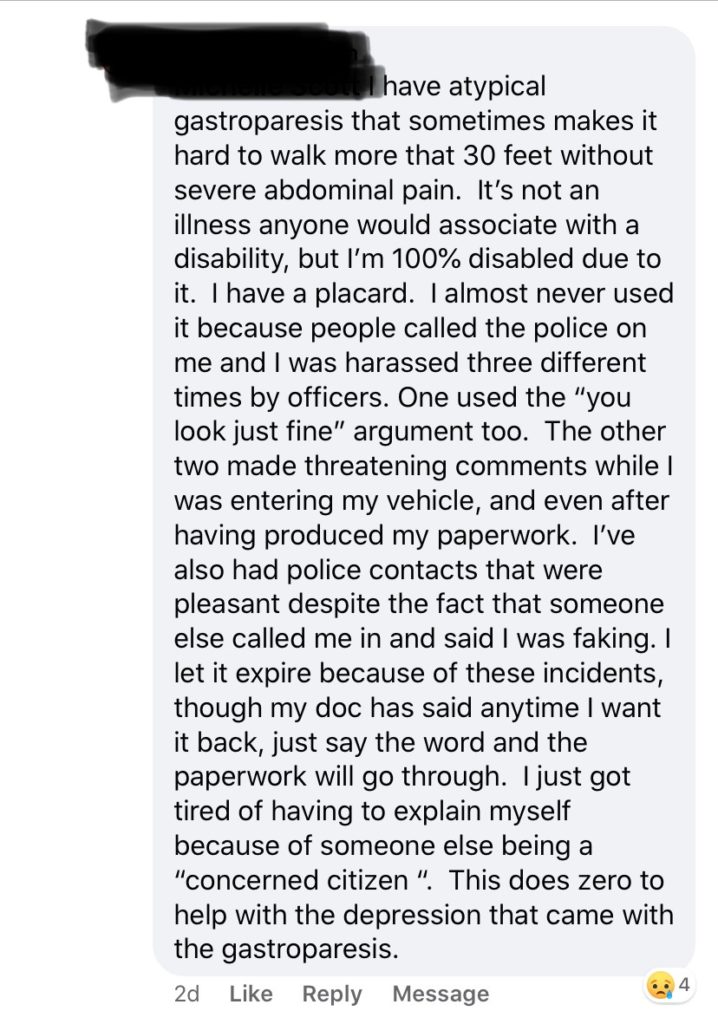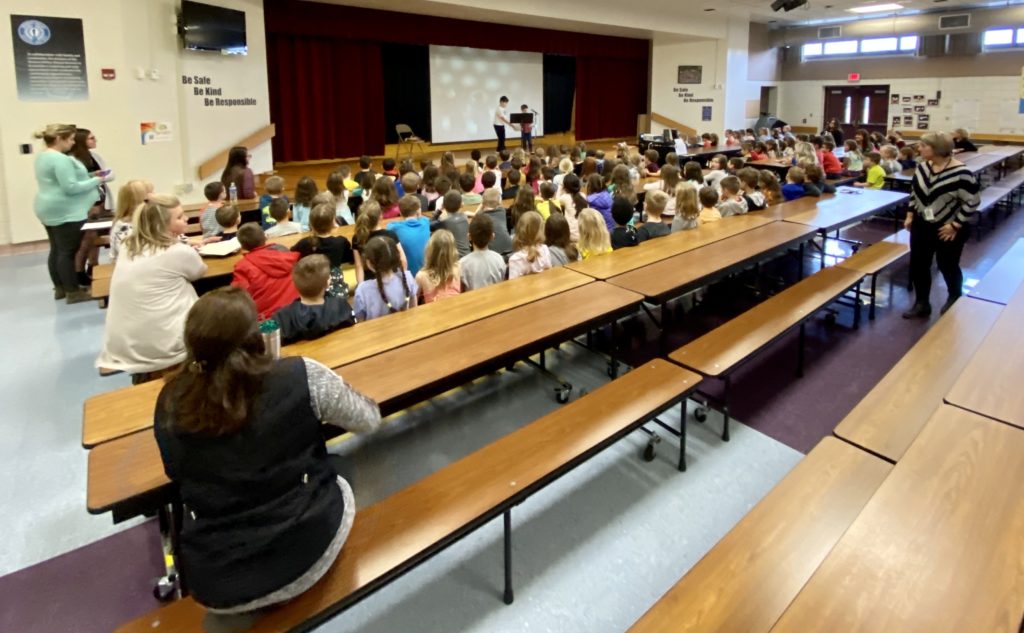Sometimes our good intentions cause great harm.
That’s what I learned recently when I brought up the conversation around disabled parking, specifically in regards to those who use it who have “invisible disabilities.” Invisible disabilities include a wide range of medical conditions that can cause severe pain and/or exhaustion, but you can’t necessarily tell that a person has it just by looking at them.
A woman shared her story about being harassed by a police officer because she “didn’t look like she was disabled,” and while I agreed that the officer could have handled it better, I proposed that perhaps the other side of the story is that he was actually trying to protect her/people with disabilities by questioning someone who was using the spot who didn’t appear to need it. I’ve heard those stories before where someone was questioned/harassed for using an entrance or parking spot specifically for those with a disability, when in fact they have a disability, but it’s not visually apparent.
To be clear, I’ve never actually confronted anybody like this. I’ve called the cops when I saw people park in a spot without a placard, but have never directly spoken to someone who had one, but who I suspected was abusing it. Many people do, with good and helpful intentions, but…
Please stop doing that.
Here’s the deal. This response made me rethink and eventually change my philosophy about this:

See, I can’t stand injustice. That’s why I love when people stick-up for those being taken advantage of. So, when someone takes justice into their own hands and tries to make things right, I’m all for it. I get it. What my friend said here, though, made me realize that when we do this (in regards to these parking spots, specifically), we’re making assumptions that can ultimately hurt the person we are trying to help.
My new philosophy is this: If a person has a placard displayed, I will trust that they went through the correct channels to obtain it and believe that they need it. I will not confront or silently judge them, even if it doesn’t appear that they need it. I have no idea why they have it and, to be blunt, it’s none of my business.
Do people take advantage of it? Yes. Do people abuse it? Yes. (And if you’re reading this and that’s you, KNOCK IT OFF.) But, by and large, I would guess that’s few and far between. And I don’t EVER want to be the reason that someone who needs it chooses not to use it because of the harassment of a well-intentioned social justice warrior. Are there ways I could creatively and kindly address the situation? Sure. But again, making a person explain themselves, even if I’m doing so “kindly,” is still not a good experience for that person. And they don’t owe me an explanation, to be honest.
Let’s concentrate on being inclusive and in making things more accessible for those who need them to be. Let’s be kind without being accusatory. We’re all in this together.
Thoughts? Have you experienced this before? Please feel free to share your story/experience in the comments!

